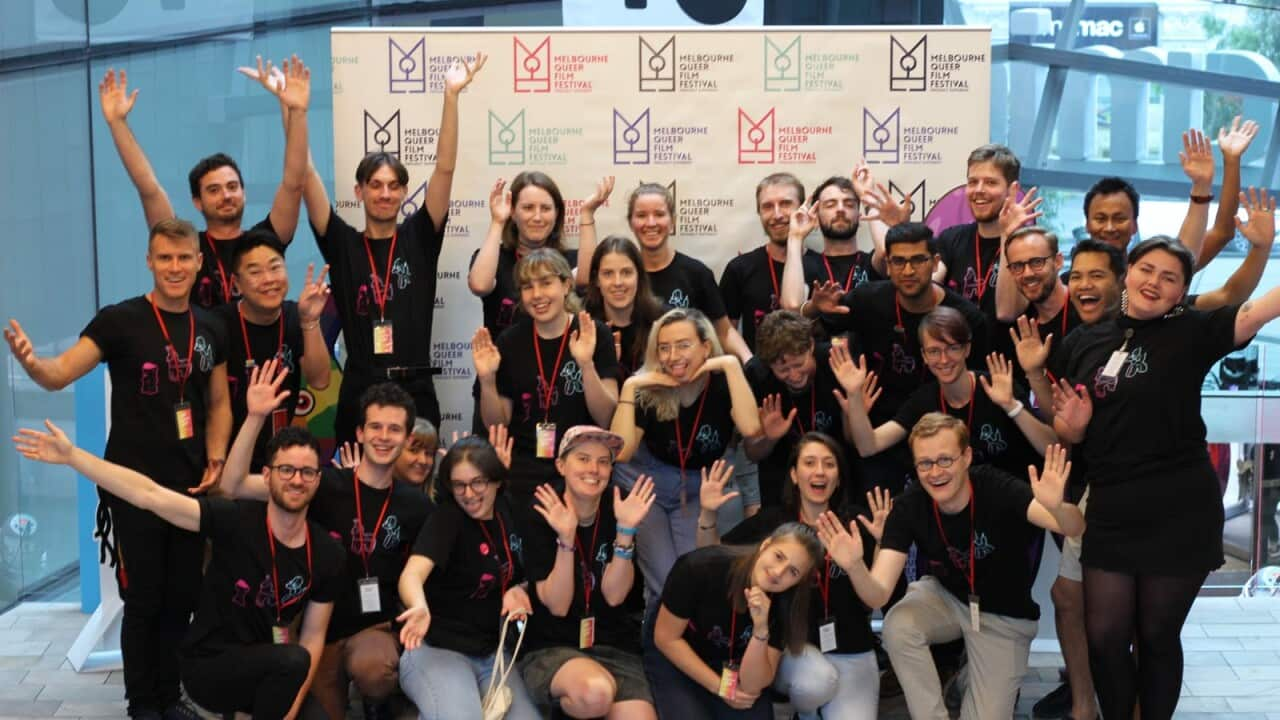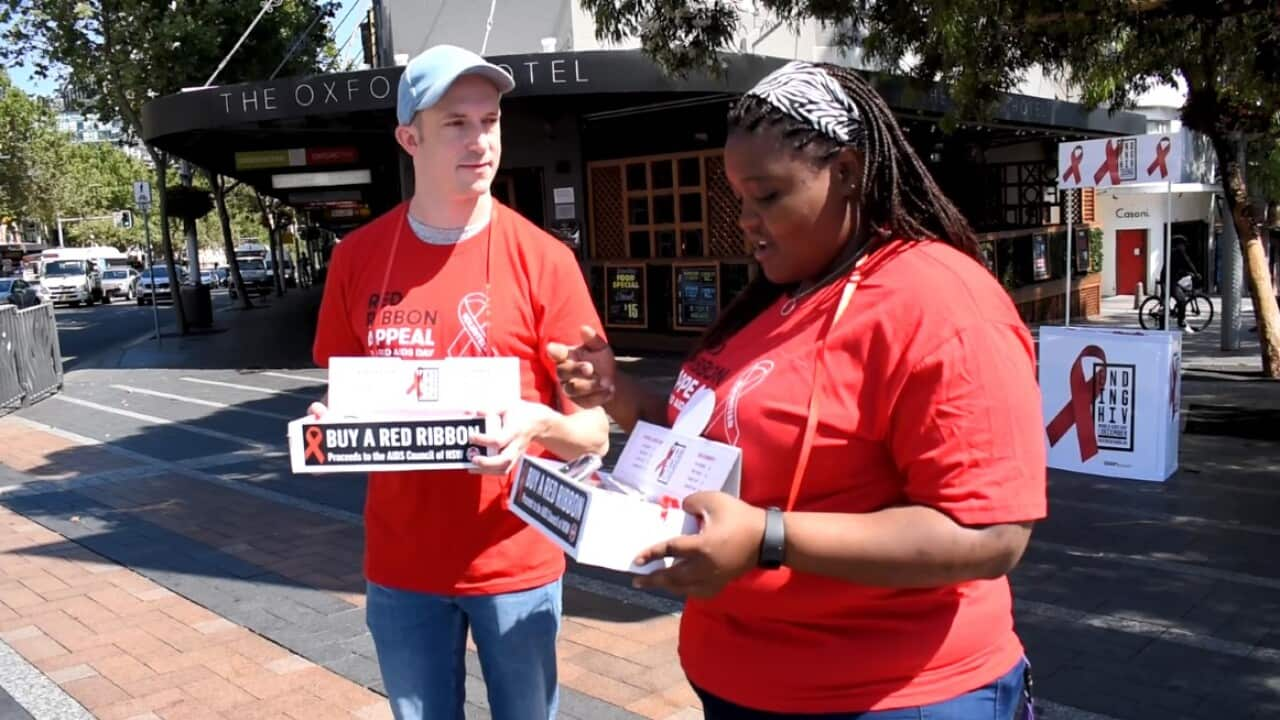For most queer people, a sense of belonging isn’t easy to come by.
We grow up surrounded by people telling us that cisgender and straight identities are the gold standard in society and that anyone who deviates from this is somehow lesser than.
Many of us are ostracised from our biological families and friends for daring to express ourselves and mainstream media outlets validate the prejudice this rejection stems from by continuing to publish anti-queer voices and sentiments in the news.
The threat of violence and persecution remains high for some of the most vulnerable members of our community, while advocates in countries around the world continue to fight for recognition and basic human rights.
For someone just beginning to come to terms with their sexual or gender identity, even an indirect awareness of these factors can lead to intense feelings of isolation and disconnection from any meaningful support.
That’s why the significance of a queer person fortunate enough to experience a true sense of belonging should not be understated.
Here in Australia that moment may arrive when two queer people meet each other and are able to connect with someone who understands their experiences on a deeper level.
That moment may also arrive when a queer person ventures out to their first pride festival, and feels liberated to be themselves in a judgement-free and inclusive space.
For me, that moment arrived in 2012 when I was sitting in a darkened cinema with hundreds of other queers, watching as a lesbian alien tried her hand at dating in New York City.
For me, that moment arrived in 2012 when I was sitting in a darkened cinema with hundreds of other queers, watching as a lesbian alien tried her hand at dating in New York City. The film we were watching was called Co-dependent Lesbian Space Alien Seeks Same and it was screening as part of the annual Melbourne Queer Film Festival.
That year I’d put my hand up to volunteer at the festival for the very first time. I’d spent my teenage years hiding in the closet that was the country town I grew up in, secretly watching late night re-runs of Dante’s Cove and mentally dating Fresh Prince-era Will Smith in an attempt to escape the homophobia that had permeated my high school.
I’d spent my teenage years hiding in the closet that was the country town I grew up in, secretly watching late night re-runs of Dante’s Cove and mentally dating Fresh Prince-era Will Smith in an attempt to escape the homophobia that had permeated my high school.

The film we were watching was called 'Co-dependent Lesbian Space Alien Seeks Same' and it was screening as part of the annual Melbourne Queer Film Festival. Source: Supplied
The moment I graduated I fled for the city, determined to meet other queer people and find a space where I could freely express my identity after years of feeling that a utopia like this was always out of reach.
What drew me to volunteer at the Melbourne Queer Film Festival were two things: that it appealed to my inner cinephile and that it would enable me to connect with a community that had been invisible to me up until that point.
On my first day of volunteering I tentatively walked through the doors to the cinema lobby with my nerves at an all-time high. I was anxious and unsure of myself but even on day one I anticipated the festival would challenge me, inspire me and hopefully instil within me a greater sense of self-assuredness.
What I didn’t anticipate is that it would change my life.
What I didn’t anticipate is that it would change my life.
Seeing queer identities and stories given a platform in film not only validated my own sense of self, but also helped expose me to the beautiful diversity and intersectionality present in LGBTIQ+ communities.
Queer films give credence to the broad spectrum of lived experiences that make up our rainbow community in a way that other films don’t. Whether following a young man with blindness navigate love for the first time in The Way He Looks, or profiling the modern day ballroom scene and how it provides a refuge for trans and gender diverse people of colour in Kiki, queer films serve the dual purpose of validating the identities of queer people around the world while educating them about the melange of stories that make up our shared history.
Whether following a young man with blindness navigate love for the first time in The Way He Looks, or profiling the modern day ballroom scene and how it provides a refuge for trans and gender diverse people of colour in Kiki, queer films serve the dual purpose of validating the identities of queer people around the world while educating them about the melange of stories that make up our shared history.

A young man with blindness navigates love for the first time in 'The Way He Looks'. Source: Supplied
As I volunteered at the Melbourne Queer Film Festival for the first time I felt comfortable about who I was in a way I never had before.
There was something heartening about sitting in a room filled with queer people, watching as variations of our own stories were projected onto the screen.
There was something heartening about sitting in a room filled with queer people, watching as variations of our own stories were projected onto the screen.
The people who attended the festival – both patrons and volunteers alike – also had a profound impact on me.
Before and after each film screening I would get the opportunity to speak with festivalgoers over a bucket of popcorn about the films they were either about to see or had already seen, and talk about how it connected to their own lives or understandings of the world.
While our opinions were at times divergent, it was thrilling to be able to openly speak and connect with other queer people. I was fortunate enough to have supportive family and friends at the time but there was something particularly special about feeling truly heard and understood.
It was the first time I’d spent with a group of queer people and, in contrast to my high school experiences of rejection and isolation, at the festival I felt included.
It also helped further entrench my social conscience, and in no small way led me to champion LGBTIQ+ advocacy and activism in the years since. Political issues and social causes were prominent features in the films screened during my first year volunteering. The documentary We Were Here chronicled the unfolding HIV/AIDS epidemic in San Francisco by people who lived through that era-defining time, while the energetic Leave It on the Floor explored rejection and the importance of finding one’s logical family.
Political issues and social causes were prominent features in the films screened during my first year volunteering. The documentary We Were Here chronicled the unfolding HIV/AIDS epidemic in San Francisco by people who lived through that era-defining time, while the energetic Leave It on the Floor explored rejection and the importance of finding one’s logical family.

The documentary 'We Were Here' chronicled the unfolding HIV/AIDS epidemic in San Francisco by people who lived through that era-defining time Source: Supplied
The films enabled me to reflect on the state of LGBTIQ+ rights in Australia and around the world, and understand the actions needed to help advance the cause for equality.
Over the years the Melbourne Queer Film Festival has helped to advance a number of social causes; in 2016 the festival live-streamed its opening night to queer people in Russia as a symbol of defiance against the country’s ‘gay propaganda’ law, and for several years the festival and beyondblue selected participants to shoot short films about everyday queer people, which were then screened during the festival (a project I took part in).
In so many ways my passion and advocacy for LGBTIQ+ rights over the years stemmed from the inclusive and political space the festival provided for me back in 2012.
Back then the festival provided me with a sense of belonging at a time when I needed it the most and for that I’ll always be grateful. It enabled me to feel sure of myself and confident about expressing my sexuality in a society that discourages queer people from doing so. This year the Melbourne Queer Film Festival will celebrate its 30th anniversary and I’ll be celebrating my eighth year as a volunteer.
This year the Melbourne Queer Film Festival will celebrate its 30th anniversary and I’ll be celebrating my eighth year as a volunteer.

'Leave It on the Floor' explored rejection and the importance of finding one’s logical family. Source: Supplied
Queer film festivals everywhere continue to provide safe havens for queers like me and shine a much-needed spotlight on diverse and intersectional stories where other spaces do not.
They will always create an important space for queer people. They bring us together and celebrate our identities in a way that is inspiring, educational and life-affirming.
Each year that I volunteer I strive to be a welcoming and supportive presence for the next queer person who may tentatively walk through the doors to the cinema lobby, looking for a connection to their community and a sense of belonging.
It’s vital.
Matthew Wade is a long-time LGBTIQ+ advocate and the former Editor-in-Chief of the Star Observer. When he isn't trying to tell anyone who will listen why Waiting to Exhale is one of the best films of the nineties or why Kelis remains criminally underrated, he likes to volunteer at JOY 94.9 and the Melbourne Queer Film Festival.





